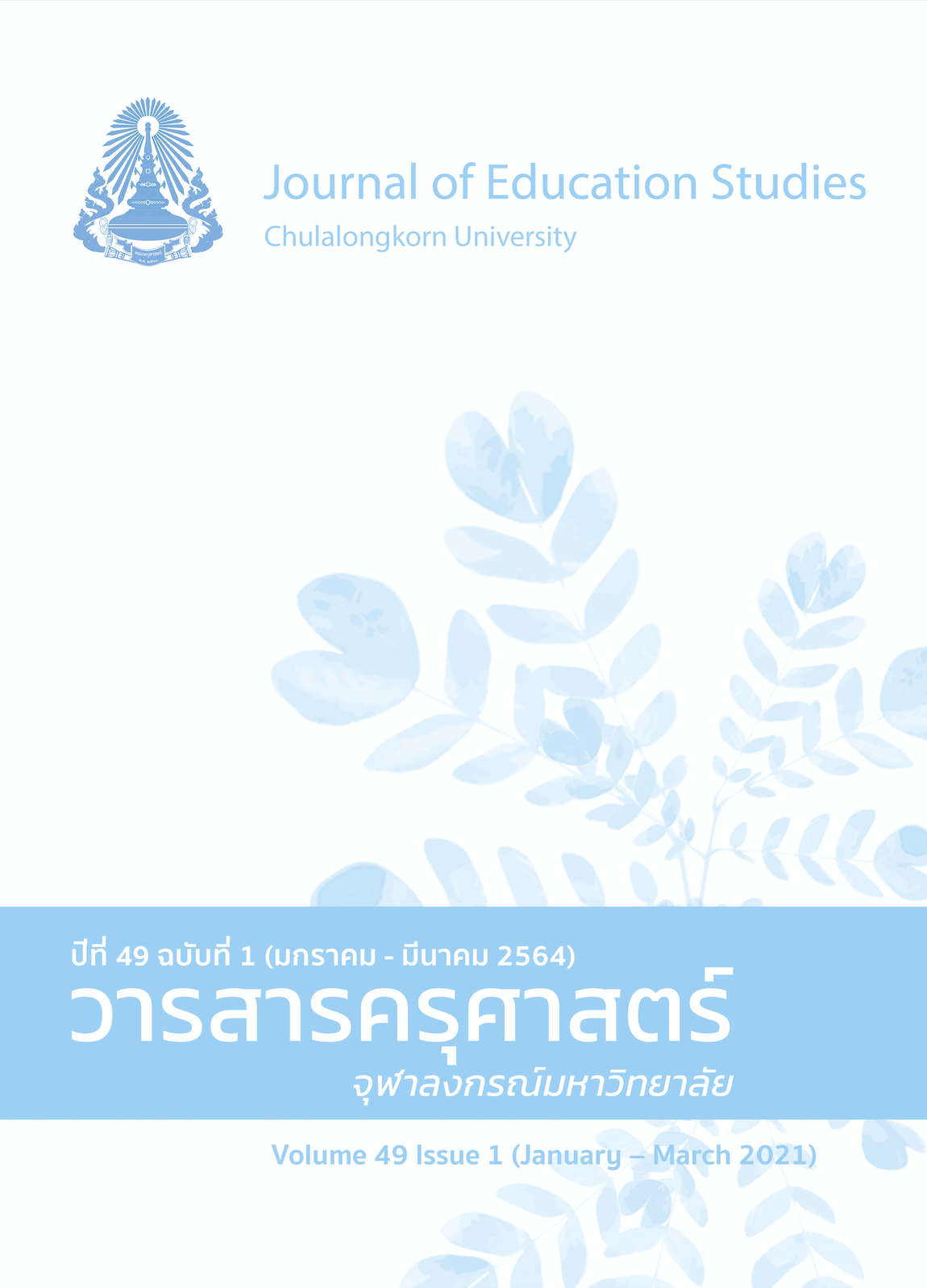Development of an E-testing Examination Process for the Thailand Cyber University Program
DOI:
https://doi.org/10.14456/educu.2021.19Keywords:
Electronic testing (E-testing), Thailand Cyber University programAbstract
This research aimed to 1) survey the E-testing system needs of universities involving
in the teaching and learning of the Thailand Cyber University program, 2) design an E-testing
system for the Thailand Cyber University program, and 3) simulate a test using the E-testing
system (prototype model) of the Thailand Cyber University program. The sample group
consisted of 80 participants who were instructors teaching online courses and staff producing
online materials. The study was conducted through structured interviews and opinion
brainstorming. The data were analyzed using the content analysis method. The results are
as follows: 1) The overall requirements for an E-testing system were found to be: (1) test
objectives, (2) test registrants’ qualifications, (3) test fees, (4) test duration, (5) test center,
and (6) test questions. 2) The E-testing system of the Thailand Cyber University program
consists of seven main components, which are (1) a membership and registration system,
(2) a test management system, (3) test questions and quiz management, (4) a test proctoring
system, (5) a testing system, (6) an open-ended questions grading system, and (7) a system
for reporting test results and statistical data. 3) The simulation of TCU E-testing showed
that, with the system developed, all data were accurately displayed on the screen as
designed.
References
ณฐภัทร ติณเวส และฐาปนีย์ ธรรมเมธา. (2559). การศึกษารูปแบบการจัดการศึกษาออนไลน์ระบบเปิดแบบ MOOC ของอุดมศึกษาไทย. Veridian E-Journal มหาวิทยาลัยศิลปากร ฉบับภาษาไทย สาขามนุษยศาสตร์ สังคมศาสตร์ และศิลปะ, 9(3), 1463-1479.
ดำรงค์ สุพล. (2555). ระบบคลังข้อสอบออนไลน์โดยใช้วิธีการวิเคราะห์ข้อสอบรายข้อ. The Eighth National Conference on Computing and Information Technology. มหาวิทยาลัยเทคโนโลยีพระจอมเกล้า พระนครเหนือ.
รัฐพงษ์ อ่อนจันทร์. (2557). ระบบสอบออนไลน์เคลื่อนที่ขนาดใหญ่ [วิทยานิพนธ์วิศวกรรมศาสตรมหาบัณฑิต]. มหาวิทยาลัยเทคโนโลยีสุรนารี.
วีระศักดิ์ วีระวงศ์. (2554). การบริหารระบบการจัดการการสอบออนไลน์ คณะวิศวกรรมศาสตร์
มหาวิทยาลัยแห่งชาติลาว [วิทยานิพนธ์ครุศาสตร์อุตสาหกรรมมหาบัณฑิต]. มหาวิทยาลัยเทคโนโลยีพระจอมเกล้าธนบุรี.
สมพันธุ์ ชาญศิลป์ และคะชา ชาญศิลป์. (2550). ระบบสอบออนไลน์เคลื่อนที่ของ มทส. มหาวิทยาลัยเทคโนโลยีสุรนารี.
Al-amri, S. (2009). Computer-based testing vs. paper-based testing: establishing the comparability of reading tests through the evolution of a new comparability model in a Saudi EFL context. Thesis submitted for the degree of Doctor of Philosophy in Linguistics.University of Essex.
Karadeniz, S. (2009). The impacts of paper, web and mobile based assessment on students’ achievement and perceptions. Scientific Research and Essay, 4(10), 984 – 991.
The Online Learning Consortium. (2563). Quality Scorecard for Online Student Support. https://onlinelearningconsortium.org
Downloads
Published
How to Cite
Issue
Section
License

This work is licensed under a Creative Commons Attribution-NonCommercial-NoDerivatives 4.0 International License.




